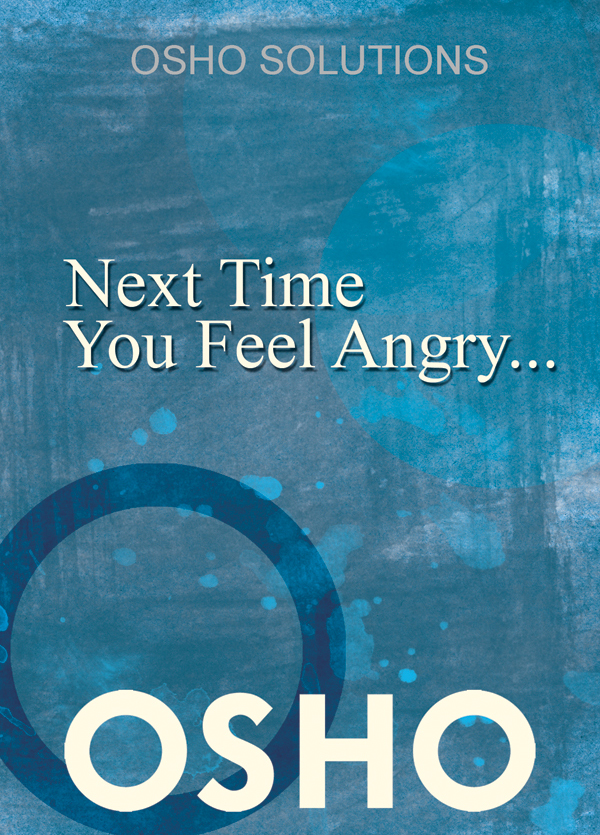The title of this little book might give you the idea that youhave found another self-help or how to book. This is far from the case.Instead, the Osho insights provided here open a door where all questions of"how to" dissolve into a direct experience of your own hiddenreality.
Some of the ideas you encounter here may at first surprise oreven shock you. They may go against your beliefs or they may triggerrecognition of truths that you feel you have always known but perhaps neverexpressed.
Whatever the case, relax into new levels of understanding thatgrow as you come closer and closer to the truth of your own being.
No, this is not a "how to" book. It is a flame that canbe used to light the hidden corners of your own unique individuality.
Next Time You Feel Angry
A Zen student came to Bankei and said: Master, I have anungovernable temper how can I cure it? Show me this temper, said Bankei,it sounds fascinating. I havent got it right now, said the student, so Icant show it to you. Well then, said Bankei, bring it to me when you haveit. But I cant bring it just when I happen to have it, protested thestudent. It arises unexpectedly, and I would surely lose it before I got it toyou. In that case, said Bankei, it cannot be part of your true nature. Ifit were, you could show it to me at any time. When you were born you did nothave it, and your parents did not give it to you so it must come into youfrom the outside. I suggest that whenever it gets into you, you beat yourselfwith a stick until the temper cant stand it, and runs away.
The true nature is your eternal nature. You cannot have it andnot have it, it is not something that comes and goes it is you. How can itcome and go? It is your being. It is your very foundation. It cannot besometimes, and not be sometimes; it is always there.
This should be the criterion for a seeker of truth, nature, tao:that we have to come to the point in our being which remains always and always even before you were born it was there, and even when you are dead it will bethere. It is the center. The circumference changes, the center remainsabsolutely eternal; it is beyond time. Nothing can affect it, nothing canmodify it, nothing really ever touches it; it remains beyond all reach of theoutside world.
Go and watch the sea. Millions of waves are there, but deep inits depth the sea remains calm and quiet, deep in meditation; just on thesurface is the turmoil, just on the surface where the sea meets the outsideworld, the winds. Otherwise, in itself, it always remains the same, not even aripple; nothing changes.
It is the same with you. Just on the surface where you meetothers there is turmoil, anxiety, anger, attachment, greed, lust just on thesurface where winds come and touch you. And if you remain on the surface youcannot change this changing phenomenon; it will remain there.
Many people try to change it there, on the circumference. Theyfight with it, they try not to let a wave arise. And through their fight evenmore waves arise, because when the sea fights with the wind there will be moreturmoil: now not only will the wind help it, the sea will also help therewill be tremendous chaos on the surface.
All the moralists try to change a man on the periphery; thecharacter is your periphery. You dont bring any character into the world, youcome absolutely characterless, a blank sheet, and all that you call yourcharacter is written by others. Your parents, society, teachers, teachings all are conditionings. You come as a blank sheet, and whatsoever is written onyou comes from others; so unless you become a blank sheet again you will notknow what nature is, you will not know what brahman is, you will not know whattao is.
So the problem is not how to have a strong character, the problemis not how to attain no-anger, how not to be disturbed no, that is not theproblem. The problem is how to change your consciousness from the periphery tothe center. Suddenly you see that you have always been calm and then you canlook at the periphery from a distance, and the distance is so vast, infinite,that you can watch as if it is not happening to you. In fact, it never happensto you. Even when you are completely lost in it, it never happens to you:something in you remains undisturbed, something in you remains beyond,something in you remains a witness.
The whole problem for the seeker is how to shift his attentionfrom the periphery to the center; how to be merged with that which isunchanging, and not to be identified with that which is just a boundary. On theboundary others are very influential, because on the boundary change isnatural. The periphery will go on changing even a Buddhas periphery changes.
The difference between a buddha and you is not a difference ofcharacter remember it. It is not a difference of morality, it is not adifference in virtue or non-virtue. It is a difference in where you aregrounded.
You are grounded on the periphery, a Buddha is grounded in thecenter. He can look at his own periphery from a distance; when you hit him hecan see it as if you have hit somebody else, because the center is sodistantas if he is a watcher on the hills and something is happening in thevalleys and he can see it. This is the first thing to be understood.
Second thing: it is very easy to control, it is very difficult totransform. It is very easy to control. You can control your anger, but whatwill you do? you will suppress it. And what happens when you suppress acertain thing? The direction of its movement changes: it was going out, and ifyou suppress, it starts going in just the direction changes. And for theanger to go out was good, because the poison needs to be thrown out. It is badfor the anger to move within, because that means your whole bodymind structurewill be poisoned by it.
And then if you go on doing it for a long timeas everybody hasbeen doing, because the society teaches control, not transformation. Thesociety says, Control yourself, and through controlling, all the negativethings have been thrown deeper and deeper into the unconscious. Then theybecome a constant thing within you. Then it is not a question that sometimesyou are angry and sometimes not you are simply angry. Sometimes you explode,and sometimes you dont explode because there is no excuse, or you have to findan excuse. And remember, you can find an excuse anywhere!


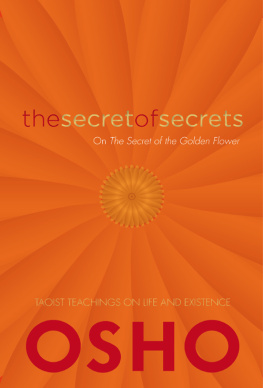
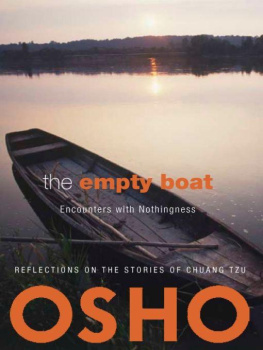
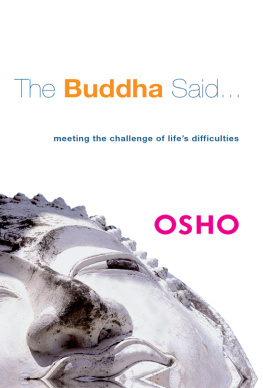
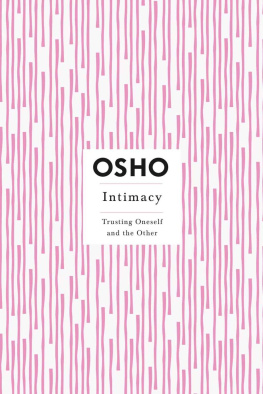
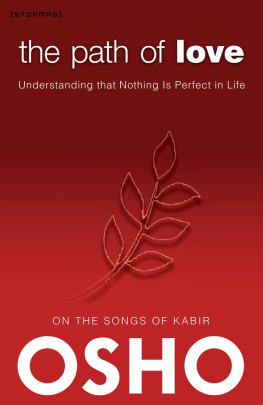

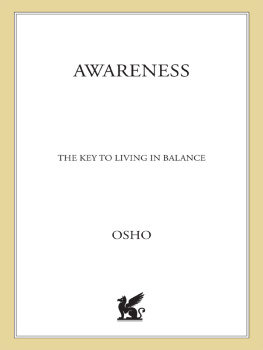

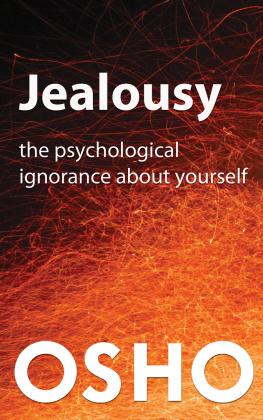
![Osho [Osho] - The Art of Dying](/uploads/posts/book/114253/thumbs/osho-osho-the-art-of-dying.jpg)
